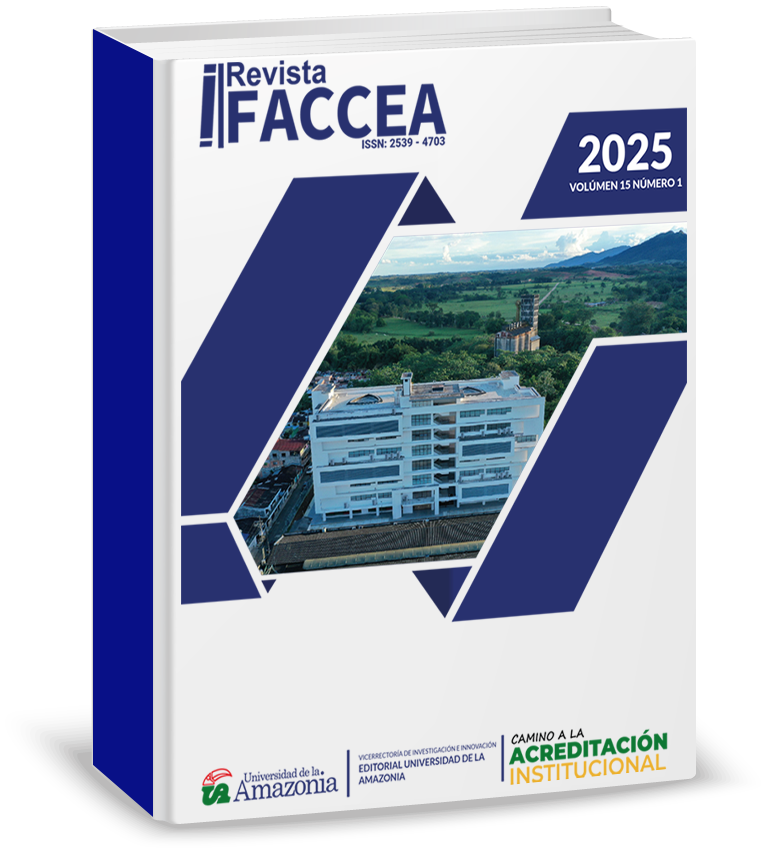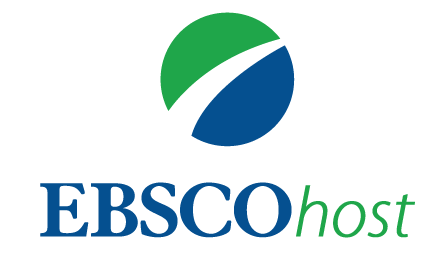ELECTRONIC INVOICING IN MICROENTERPRISES OF THE COMMUNE OF NEIVA: PERSPECTIVES
DOI:
https://doi.org/10.47847/faccea.v15n1a2Keywords:
Digital Billing, Micro-entrepreneurs, Commercial Technology, System Implementation, Technological AdoptionAbstract
This study analyzes the implementation of electronic billing among micro-entrepreneurs in commune two of Neiva, Huila, from a descriptive quantitative perspective. It examines the micro-entrepreneurs' knowledge of this system and evaluates their perceptions of the advantages and disadvantages of its use. The results indicate a low level of adaptation to the digital system, with only 23% of micro-entrepreneurs incorporating this technology, compared to 77% who have not. The research identifies the need to increase education and support to overcome barriers of inoperability and fear towards digital technology. Additionally, significant benefits such as the optimization of accounting processes and the reduction of paper use, contributing to environmental sustainability, are highlighted. This work underscores the importance of technological adaptation to improve efficiency and competitiveness in the micro-enterprise sector.
Downloads
References
Aguilar Castro, E. (2020). Evolución de la factura electrónica como comprobante fiscal, su complicación y la Ley de Gobierno Electrónico en México. Repositorio nacional CONACYT. https://repositorioinstitucional.uaslp.mx/xmlui/handle/i/7431
Boness de Vasconcellos, K. (2021). uma análise da literatura sobre o uso de ferramentas tecnológicas nos processos contábeis brasileiros. Universidad Federal de Santa Catarina, 1-52. http://repositorio.fucamp.com.br/jspui/handle/FUCAMP/568
Carrascal-Velásquez, B. L., Hoyos-Patiño, J. F., Sayado-Velasquez, L. N., & Sayago-Velasquez, J. E. (2020). Ventajas de la facturación electrónica en empresas de Cúcuta-Norte de Santander. Reflexiones contables UFPS, 3(1), 68-81. https://doi.org/10.22463/26655543.2896
Castillo Espitia, D. M. (2021). Perspectivas de la seguridad de la información en Colombia, criptografía y firmas digitales. https://repository.unipiloto.edu.co/bitstream/handle/20.500.12277/10811/Perspectivas%20de%20la%20seguridad%20Inform%C3%A1tica%20en%20Colombia%2C%20criptograf%C3%ADa%20y%20firmas%20digitales.pdf?sequence=1&isAllowed=n
Castro Laynes, E. E., & Custodio Pizan, D. N. (2023). Implementación de un sistema de facturación electrónica para mejorar el proceso de envío de comprobantes electrónicos en la empresa “OSIS FISH”, Lima-2023. https://hdl.handle.net/20.500.12867/7984
Congreso de la República de Colombia. (1971). Funcion Pública. Obtenido de Decreto 410 de 1971: https://www.funcionpublica.gov.co/eva/gestornormativo/norma.php?i=41102
De Arco Fandiño, S. (2020). La facturación electrónica frente al recaudo tributario en Colombia. Universidad de la Costa. https://hdl.handle.net/11323/6417
Dolça, S. (2019). Microempresa red y productividad, un análisis empírico para el contexto español. Tesis doctoral. Universidad Oberta de Cataluña, España. https://tesisenred.net/bitstream/handle/10803/687931/Tesis_Dol%C3%A7a%20Soria%20Yter.pdf?sequence=1&isAllowed=y
El-Manaseer, SA, Al-Kayid, JH, Al Khawatreh, AM y Shamim, M. (2023). El Impacto de la Transformación Digital en el Combate a la Evasión Fiscal (Sistema de Facturación Electrónica como Modelo). En Inteligencia artificial (IA) y finanzas (págs. 679-690). Cham: Springer Nature Suiza. https://doi.org/10.1007/978-3-031-39158-3_63
García, B., Sánchez, M. A., & Abadía, J. (2021). Herramienta web con tecnología de cadena de bloques para un sistema de facturación electrónica en Colombia. Información tecnológica, 32(3), 15-24. http://dx.doi.org/10.4067/S0718-07642021000300015
Hernández Aros, L., Martínez Romo, K. S., León Galvis, M. A., & Florez Guzman, M. H. (2021). La facturación eletrónica en Colombia, Brasil y Chile: análisis en sus procedimientos y aspectos condicionantes. CAFI, 4(2), 150–167. https://doi.org/10.23925/cafi.v4i2.52112.
Hernández, P y Mendoza C.P. (2020). Metodología de la investigación: Las rutas cuantitativa, cualitativa y mixta. McGraw-Hill. http://190.57.147.202:90/xmlui/handle/123456789/3185
Ianenko, M., Ianenko, M., Huhlaev, D., & Martynenko, O. (2019). Digital transformation of trade: problems and prospects of marketing activities [Transformación digital del comercio: problemas y perspectivas de las actividades de marketing]. In IOP Conference Series: Materials Science and Engineering (Vol. 497, 1, p. 012118). IOP Publishing. https://doi.org/10.1088/1757-899X/497/1/012118
Kehler, M., Regier, S., & Stengel, I. (2020). An Innovative IoT Based Financing Model for SMEs. In CERC (pp. 361-370). https://ceur-ws.org/Vol-2815/CERC2020_paper23.pdf
Krieger, F., Drews, P., & Funk, B. (2023). Automated invoice processing: Machine learning-based information extraction for long tail suppliers. Intelligent Systems with Applications, 20, 200285. https://doi.org/10.1016/j.iswa.2023.200285
Márquez Olier, M. J. (2020). Gerenciar empresas con la factura electrónica. Bogotá: Tirant lo blanch. https://editorial.tirant.com/co/ebook/gerenciar-empresas-con-la-factura-electronica-mario-jose-marquez-olier-9788413557946
Mausa, M., Villalba, A., y Ortiz, L. (2023). Impacto del Nuevo Moledo de Facturación Electrónica en Colombia (Doctoral dissertation, Universidad Cooperativa de Colombia). https://hdl.handle.net/20.500.12494/51306
Mejía, M. D. L. Á. M. (2023). Impacto del Nuevo Moledo de Facturación Electrónica en Colombia (Doctoral dissertation, Universidad Cooperativa de Colombia). https://hdl.handle.net/20.500.12494/51306
Noguni Villón, J. N., & Romero Reátegui, H. A. (2019). Propuesta para desarrollar y utilizar a la BVL como mecanismo de financiamiento para la PYMES a través de la profundización del uso del factoring. https://hdl.handle.net/20.500.12640/1569
Pachón Torre, A. (2023). Medidas para combatir las planificaciones fiscales agresivas: Pilar 2. https://hdl.handle.net/20.500.14352/87353
Pimenta, C., & Seco, A. (2019). Oportunidades tecnológicas y recomendaciones para la modernización de los Sistemas Integrados de Administración Financiera en América Latina y el Caribe. BID. http://dx.doi.org/10.18235/0001522
Ramírez Álvarez, J., Oliva, N., & Andino, M. (2022). Cumplimiento tributario y facturación electrónica en Ecuador: evaluación de impacto. Problemas Del Desarrollo. Revista Latinoamericana De Economía, 53(208), 97-123. https://doi.org/10.22201/iiec.20078951e.2022.208.69712
Rivas Tucto, J. J., & Castillo Talexio, N. V. (2020). Plataforma tecnológica para el seguimiento de transporte logístico de alimentos en la cadena de frío. http://doi.org/10.19083/tesis/653134
Rodríguez, N., & Troncoso, C. (2023). Facturación electrónica en Colombia: Retos y oportunidades para su implementación. https://hdl.handle.net/10901/27640
Roncallo, R. (2019). Facturación electrónica en Colombia: Una reflexión de sus efectos en el sector salud. ECONÓMICAS CUC, 40(1), 27-46. https://doi.org/10.17981/econcuc.40.1.2019.02
Schwab, K. (2020). La cuarta revolución industrial. Futuro hoy , 1 (1), 06-10. https://doi.org/10.52749/fh.v1i1.1
Segura Clavijo, K. S. (2020). Análisis económico-financiero a la regulación a la factura electrónica como título valor. https://doi.org/10.57998/bdigital.handle.001.3742
Serrano Aragón, M. de los Ángeles. (2023). Facturación electrónica y Cumplimiento Tributario. Magazine De Las Ciencias: Revista De Investigación E Innovación, 8(3), 133–148. https://doi.org/10.33262/rmc.v8i3.2925
Tosca Magaña, S., Mapén Franco, F. D. J., & Martínez Prats, G. (2021). Facturación electrónica como herramienta para aumentar la productividad de la empresa. Revista Investigación y Negocios, 14(23), 6-15. https://doi.org/10.38147/invneg.v14i23.124
Urbano, A., y Ledezma, D. (2020). Análisis del Proceso de Implementación de la Facturación Electrónica En Colombia. Obtenido de Universidad ICESI. https://repository.icesi.edu.co/biblioteca_digital/bitstream/10906/87435/1/TG02899.pdf
Downloads
Published
Issue
Section
License
Copyright (c) 2025 Journal of the Faculty of Accounting, Economics and Administrative Sciences -FACCEA

This work is licensed under a Creative Commons Attribution-NonCommercial-ShareAlike 4.0 International License.



















